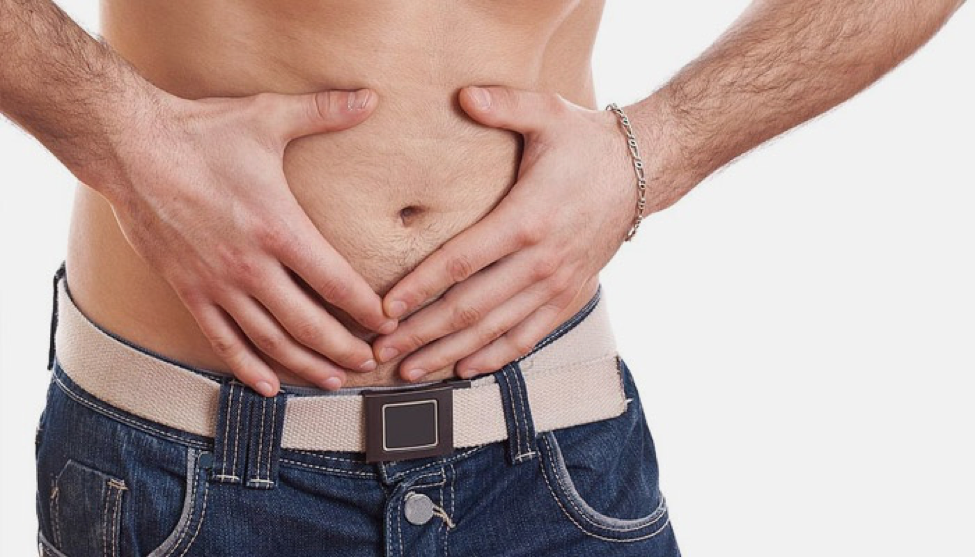


Feeling heavy in lower abdomen is a commonly occurring condition in both men and women. It is a symptom associated with various health disorders ranging from simple indigestion to other complicated health conditions. If the symptom is due to indigestion and is transient, it can be easily resolved by following simple home remedies. However, if it is present for a prolonged duration, you should consult your doctor for a proper diagnosis and treatment.

Gastritis is characterized by inflammation of the lining of the stomach. It is caused by infection by bacteria (Helicobacter pyroli) and viruses and consuming spicy food, alcohol and NSAIDS such as ibuprofen. Associated symptoms are abdominal pain, nausea, indigestion, loss of appetite and hiccups.
The treatment options include:
Bloating or lower abdomen heaviness is a commonly occurring symptom of irritable bowel syndrome (IBS). Other symptoms are abdominal pain, cramping, diarrhea and constipation. IBS is a chronic disease and the cause is still not completely understood. In IBS the colon becomes oversensitive and even a mild stimulation can cause the colon to over react, leading to muscle spasms in the colon.
There are certain factors that can trigger symptoms of IBS:
In most people the symptoms of IBS are mild and can be managed by changing lifestyle and dietary habits and reducing stress levels. Only a few people get a severe form of IBS. If you suffer from IBS your doctor may suggest:
Women may experience feelings of heaviness in lower abdomen if they have premenstrual syndrome (PMS). It might extend from when they ovulate to the start of their periods. They may also complain of abdominal cramps and mood swings. Missed periods due to hormonal imbalance can also lead to heaviness in the lower abdomen. Pregnant women complain of heavy feeling in the lower abdomen during the early stages of pregnancy. Other early signs of pregnancy include nausea, dizziness, abdominal cramps, spotting, breast tenderness and frequent urination.
In case of PMS, symptoms can be managed by drinking a lot of water, chamomile tea, and green tea and ginger tea.
Constipation can cause heaviness and discomfort in the lower abdomen. It’s characterized by passage of less than 3 bowel movements per week. Constipation can occur as a side effect of consuming certain medications or due to certain health conditions and food habits.
It can be managed by drinking lots of water, eating fibrous fruits and vegetables and using laxatives (do not use laxatives for more than 2 weeks). Consult your doctor if the symptoms of constipation persist or you have blood in your stools. If constipation is due to other health conditions then it will resolve once that condition is treated.
In men enlarged prostate can lead to heaviness in lower abdomen. Associated symptoms are slow urinary stream, urgency to urinate, frequent urination and presence of blood in urine.
To manage the condition, your doctor may recommend alpha blockers to relieve the symptoms and 5-alpha reductase inhibitors to shrink the prostate. Your doctor may suggest surgery if you do not respond to medications and if your symptoms are severe.
Urinary tract infection occurs when bacteria from the anus infects the urethra which then enters the bladder. If the infection in the bladder is left untreated, it can also enter the kidney. Urinary tract infection causes heaviness and tenderness in the lower abdomen. The other symptoms of UTI include fever, chills, nausea, vomiting, cloudy urine and blood in urine.
Most urinary tract infections, if diagnosed early, are simple to treat. Antibiotics are usually prescribed to treat the infection and you will be advised to drink plenty of fluids.
Abdominal muscle overexertion due to intense workouts in the gym and athletic activities can lead to heaviness in lower abdomen. Inflammation and swelling in the lower abdomen are other symptoms.
You can treat the symptoms by applying cold pack for 20 minutes several times in a day. You can also apply heat therapy by taking a warm bath. You can take OTC pain medications to relieve pain.
Other associated symptoms are pain in abdomen, gas and bloating. In bowel obstruction your bowel is blocked due to various reasons, making it difficult to pass gas and stools. Bowel obstruction can occur due to the following causes:
How to manage bowel obstruction
Ascites is characterized by accumulation of fluid in the abdominal cavity. Ascites can be a cause of heaviness in lower abdomen. It can also cause pain and cramping. The common cause of ascites is cirrhosis or advanced liver disease. Congestive heart failure and kidney failure can also cause ascites.
The treatment options for ascites include:
In very advanced cases, surgery to insert a shunt and liver transplant is suggested